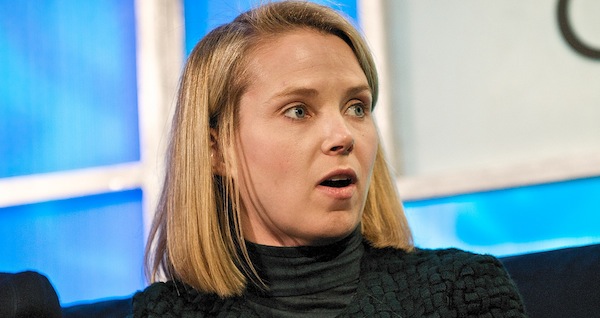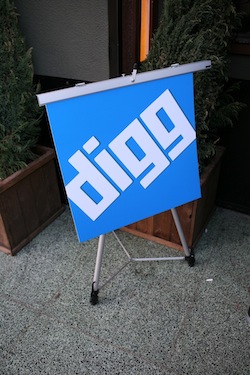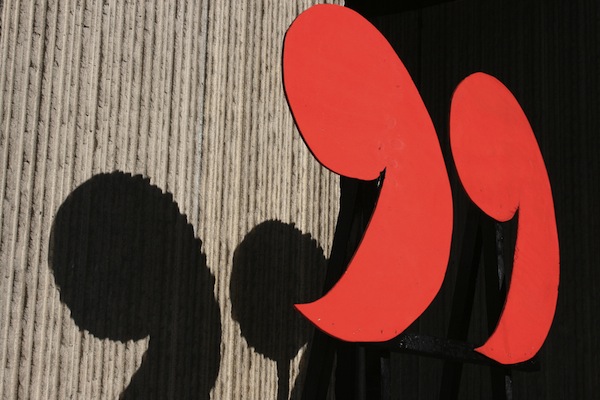

Yahoo’s surprising hire: Yahoo’s struggles over the past several years have been well documented, but the company made a big splash this week with its choice of a new CEO to try to lead its turnaround — top Google executive Marissa Mayer. Some observers, such as TechCrunch founder Michael Arrington and Wired’s Steven Levy, saw the hiring of Mayer, who spent much of her time at Google heading up its search and local divisions, as an ideal fit for Yahoo. Others, like GigaOM’s Mathew Ingram, entrepreneur Mike Walrath, and Forrester’s Shar VanBoskirk, said that as a technologist, Mayer makes a poor fit with a company whose future should lie in improving its media products, rather than its technological innovation.
The Guardian’s Charles Arthur argued that by hiring Mayer, Yahoo is indeed making a clear statement that it’s a technology company more than anything. Staci Kramer of paidContent made a similar point, saying the board opted to focus on improving its products over its media offerings — and it’s harder to find good leaders in the former than the latter.
But as PandoDaily’s Sarah Lacy noted, Yahoo has a long, ugly history with its headline-grabbing CEO hires and a lot of issues to address. Kara Swisher of All Things D posed several of those issues as questions to Mayer, wondering how she’ll attract the top talent to engineer a turnaround while also making necessary cuts. Here at the Lab, Ken Doctor said the key question is what Mayer can bring to Yahoo that makes the company truly distinctive, and predicted that specialty will revolve around mobile media.
Mayer told The New York Times she plans to focus on improving Yahoo’s user experience, which, of course, could mean just about anything. The Atlantic’s Megan Garber pointed out that the Internet’s top priority for Yahoo seems to be getting its photo-sharing site Flickr fixed, and Julieanne Smolinski of XOJane urged Mayer to keep Yahoo “the dive bar of the Internet.” Danny Sullivan of Search Engine Land looked at the implications for search, predicting that Mayer will actually start to sunset Yahoo’s search effort.
 The mixed legacy of Digg: Digg, the social-news network that had been considered at one point the vanguard of the movement into social media, reached what will probably be seen as its nadir last week when it was sold for a reported $500,000 to the tech firm Betaworks. (Including the prior sales of some of its assets, the total was probably actually at least $16 million.) The sale marked the end of a long downfall for Digg, which Megan Garber of The Atlantic chronicled by the numbers.
The mixed legacy of Digg: Digg, the social-news network that had been considered at one point the vanguard of the movement into social media, reached what will probably be seen as its nadir last week when it was sold for a reported $500,000 to the tech firm Betaworks. (Including the prior sales of some of its assets, the total was probably actually at least $16 million.) The sale marked the end of a long downfall for Digg, which Megan Garber of The Atlantic chronicled by the numbers.
Betaworks plans to incorporate Digg into its personalized news aggregator, News.me, in an effort to reinvent both products, according to Mathew Ingram of GigaOM. Betaworks CEO John Borthwick said his company plans to revert Digg to startup mode. If Betaworks succeeds in reinvigorating Digg, PandoDaily’s Erin Griffith noted that it could become the web’s first full turnaround story.
The main questions that emerged in the wake of the deal had to do with why Digg fell so far, and what other organizations could learn from its demise. Digg’s founder, Kevin Rose, argued that Digg failed because social media “grew up” as platforms like Facebook and Twitter did what Digg attempted to do, only better. Paul Tassi of Forbes disputed that idea, arguing that Reddit is filling the exact niche Digg had hoped to fill.
Both Patricio Robles of Econsultancy and Jeff Bercovici of Forbes put together lists of lessons from Digg’s collapse, with the importance of listening to your product’s users emerging as a theme. That point was put most forcefully by Alexis Madrigal of The Atlantic, who wrote that Digg broke down because its community broke, meaning that “the technology that powered a once-massive social network is worth about $500,000. All the rest of the value derives from the people that use it.”
A few writers pointed out that Digg did accomplish some important things during its run: Om Malik of GigaOM praised Digg as a company that “opened our eyes to the potential of the social web,” and former Digg employee Aubrey Salaba of TechCrunch and former Digg devotee MG Siegler gave more personal appreciations of the site. Brian Morrissey of Digiday noted another important innovation Digg helped develop — ads that were actually a native part of the site’s structure itself.

Journalism’s dirty little quote approval secret: The New York Times reported this week on an alarming practice that’s becoming commonplace among American campaign journalism — allowing sources to review and even change tape-recorded quoted comments. Several of the country’s premier news organizations quickly responded to the exposé: Reuters and AP condemned the practice, The New York Times, Los Angeles Times, and websites Buzzfeed and RealClearPolitics began reviewing their practices, and Politico’s editor-in-chief expressed his concern.
The practice drew virtually universal disapproval from media observers. Perhaps the strongest condemnation came in The Guardian from Jeff Jarvis, who wrote that “When journalists give sources the opportunity to fix up what they’ve said, we become complicit in their spin. When we do so without revealing the practice, we become conspirators in a lie to the people we are supposed to serve: the public.”
Others made similar points: Mother Jones’ Kevin Drum said reporters are edging toward stenography, Dan Rather argued at CNN that this should prompt the public to question their trust in reporters, and Time’s James Poniewozik and former newspaper editor John L. Robinson (among others) countered the objection that reporters get valuable stories through this tactic.
The Guardian’s Ian Traynor warned American journalists with examples from Germany where requiring quote approval is standard practice. New York magazine’s Joe Coscarelli said this gives live television the upper hand as “the real gladiator arena in today’s YouTube-able, gaffe-centric political culture,” and Carl Sessions Stepp of the American Journalism Review looked at the issue from sources’ perspective, urging us to cut them a bit more slack when they do commit gaffes.
A new public editor at the Times: Marissa Mayer wasn’t the only high-profile media/tech hire this week — The New York Times hired its first woman public editor, Margaret Sullivan, executive editor of the Buffalo News. Sullivan signed on for four years, longer than any previous public editor. Poynter’s Bill Mitchell and the Columbia Journalism Review’s Sara Morrison talked to Sullivan about her plans for the position, which includes engaging in a more regular conversation with readers through the blog while keeping the more in-depth focus of the print column. You can also see a new Nieman Reports story of hers on the way the News handled a controversial crime story.
Sullivan told Mitchell and Michael Calderone of the Huffington Post that her experience as a woman would inform her perspective generally, but not in any specific way. Poynter’s Mallary Jean Tenore argued that Sullivan’s role as a woman may be more important than she’s giving it credit for, and Sullivan wrote a blog post of her own what role her gender will and won’t play in her public editing philosophy.
Sullivan also addressed the most controversial column of her predecessor, Arthur Brisbane, telling Media Matters’ Joe Strupp that she does indeed believe the Times should be a “truth vigilante.” Isaac Chotiner of The New Republic urged her not to follow Brisbane’s example in indulging the inane complaints of readers. But tech pioneer Dave Winer, however, argued that the Times’ public editor should identify more closely with the public, rather than the paper. “A good Public Editor is over-the-top critical of the news organization. He or she errs on the side of being fair to the Public and unfair to the news organization. The Public Editors the Times has hired have flipped it the other way around,” he wrote.
A place for outsourcing in journalism?: Things just keep getting worse for local content provider Journatic in the wake of the revelation a few weeks ago that it’s been using fake bylines on some pieces. The Chicago Tribune, which has invested in Journatic and had turned its TribLocal content over to the company, suspended its use of Journatic content after discovering some plagiarism in it. (Its newsroom is taking back over the TribLocal work.) Poynter also found more than 350 Journatic pieces for the Houston Chronicle with fake bylines, prompting internal reviews of Journatic content by both the Chronicle and its sister paper, the San Francisco Chronicle.
Meanwhile, Journatic sent an internal memo urging writers not to plagiarize or lie about their names or where they’re working from. And one of Journatic’s executives said he resigned because of conflicts over the company’s ethical values, though Journatic said it was about to fire him anyway. (Virtually all of those links are via Poynter’s excellent coverage of the saga.)
Opinions on the dangers of semi-automated, outsourced journalism like Journatic’s continued to flow in, including a discussion on the Bay Area’s KQED radio and a Miami Herald column by Edward Wasserman. Others cautioned not to dismiss outsourced or content-farmed journalism out of hand: Poynter’s Craig Silverman said this type of model is inevitable but needs to be done better, and GigaOM’s Mathew Ingram said Journatic is just one (very flawed) way of trying to solve the problem of paying for commodity journalism. Spot.us founder David Cohn outlined some lessons for journalists about the difficulties of building a content business on local data while trying to negotiate long-held journalism customs.
Reading roundup: It’s been a really, really busy week in media and tech. Here are a few of the stories that might have gotten lost in the shuffle:
— I noted last week that News Corp. is considering shutting down its daily tablet publication, The Daily. The publication launched a weekend edition, WKND, last weekend, and several analysts looked at why The Daily has struggled: The Next Web looked at the money, paidContent looked across some of the deeper issues involved, and Gawker’s Hamilton Nolan offered a simpler rationale. Media analyst Frederic Filloux gave the most thorough explanation, calling The Daily “a sophisticated container for commodity news.”
— NBC completed its divorce from Microsoft late last week, with msnbc.com becoming NBCNews.com. The New York Times reported that Microsoft is planning on forming its own online news team. NBCNews.com now has a long transition in front of it, and the Lab’s Adrienne LaFrance looked at the changes in the new site’s privacy policy.
— This week’s paywall notes: A report found that half of the first year’s revenue in a newspaper paywall comes in the first three months, and the Australian site Mumbrella questioned whether paywalls are changing the way reporters write. Meanwhile, Washington Post publisher Don Graham explained why his paper will never institute a paywall.
— A new study by Pew’s Project for Excellence in Journalism detailed the news environment that’s emerging on YouTube. The Washington Post focused on the rise of news’ popularity there, and the Lab’s Adrienne LaFrance offered a great analysis of what works and what doesn’t for news on YouTube.
Photos of Mayer by J.D. Lasica, Digg sign by Scott Beale, and quotation mark by Quinn Dombrowski all used under a Creative Commons license.